How Pottery Encourages Positive Mental Health
In today's fast-paced world, where stress seems to lurk around every corner, finding effective ways to enhance our mental health is more important than ever. One surprisingly powerful method is pottery. This ancient art form is not just about shaping clay; it's a journey into creativity that can profoundly impact our well-being. Imagine molding soft, pliable clay with your hands, feeling it transform under your touch. It’s not just a hobby; it’s a therapeutic experience that can help you express emotions, reduce anxiety, and cultivate mindfulness.
Pottery serves as a form of therapy, allowing individuals to express emotions and reduce anxiety through tactile engagement and creativity. When you immerse yourself in the process of creating, you enter a world where worries fade away. The act of kneading and shaping clay can be incredibly soothing, acting as a form of meditation. As you focus on the texture and form of the clay, you might find that your mind quiets, and a sense of peace washes over you. This is not just a creative outlet; it is a powerful tool for emotional release.
Engaging in pottery promotes mindfulness, focusing attention on the present moment, which can alleviate stress and enhance overall mental clarity. Imagine sitting at a pottery wheel, your hands covered in clay, the world around you fading into the background. This state of being fully present can help you escape the chaos of everyday life. By concentrating on the feel of the clay and the movements of your hands, you train your mind to let go of distractions and worries. It's like hitting the pause button on life, allowing you to breathe and just be.
Creating pottery often induces a flow state, where individuals lose track of time, fostering deep concentration and a sense of fulfillment. When you enter this flow state, you might find that hours pass by in what feels like mere minutes. This immersive experience can be incredibly rewarding, as it not only boosts your mood but also enhances your overall sense of well-being. The combination of creativity and focus allows for a unique form of expression that can lead to significant personal insights.
Pottery encourages creative expression, allowing individuals to explore their artistic side, which can lead to increased self-esteem and personal growth. Whether you’re crafting a simple bowl or an intricate vase, each piece you create tells a story. This exploration of creativity can be liberating, enabling you to break free from self-imposed limitations. As you see your creations take shape, you may find a newfound appreciation for your talents and capabilities, fostering a positive self-image.
Participating in pottery classes can foster social connections, reducing feelings of isolation and enhancing emotional support networks. Imagine sitting alongside fellow pottery enthusiasts, sharing laughter and stories as you work on your projects. This communal aspect of pottery can be incredibly enriching, providing a sense of belonging and support. Building friendships through shared creative experiences can help combat loneliness and create lasting bonds.
The physical act of shaping clay can improve fine motor skills and hand-eye coordination, contributing to overall physical health and well-being. As you manipulate the clay, you engage various muscle groups, which can enhance dexterity and strength in your hands. This physical engagement not only benefits your body but also complements the mental health advantages, creating a holistic approach to well-being.
Working with clay provides a soothing outlet for stress, enabling individuals to release pent-up emotions and find calmness in the creative process. The repetitive motions involved in pottery can be meditative, allowing you to unwind and let go of tension. Just like squeezing a stress ball, molding clay can help you channel your stress into something tangible and beautiful. This transformation of negative energy into art is not only satisfying but also therapeutic.
Incorporating pottery into a regular routine can establish a sense of stability and purpose, positively impacting mental health. When you schedule time for pottery, it becomes a dedicated space for relaxation and creativity in your life. This routine can serve as a comforting anchor amidst life’s unpredictability, giving you something to look forward to and helping you manage stress more effectively.
Pottery allows for personal reflection, helping individuals process emotions and experiences, ultimately leading to greater self-awareness and emotional resilience. As you create, you may find yourself reflecting on your thoughts and feelings. The act of shaping clay can mirror your journey through life, allowing you to explore and understand your emotions on a deeper level. This introspective process can be incredibly healing, fostering personal growth and emotional strength.
- What are the basic materials needed for pottery? You will need clay, a pottery wheel (if throwing), tools for shaping, and a kiln for firing your pieces.
- Can pottery really help with stress relief? Yes! The tactile engagement and focus required in pottery can significantly reduce stress levels.
- Do I need prior experience to start pottery? No, pottery classes are available for all skill levels, from beginners to advanced artisans.
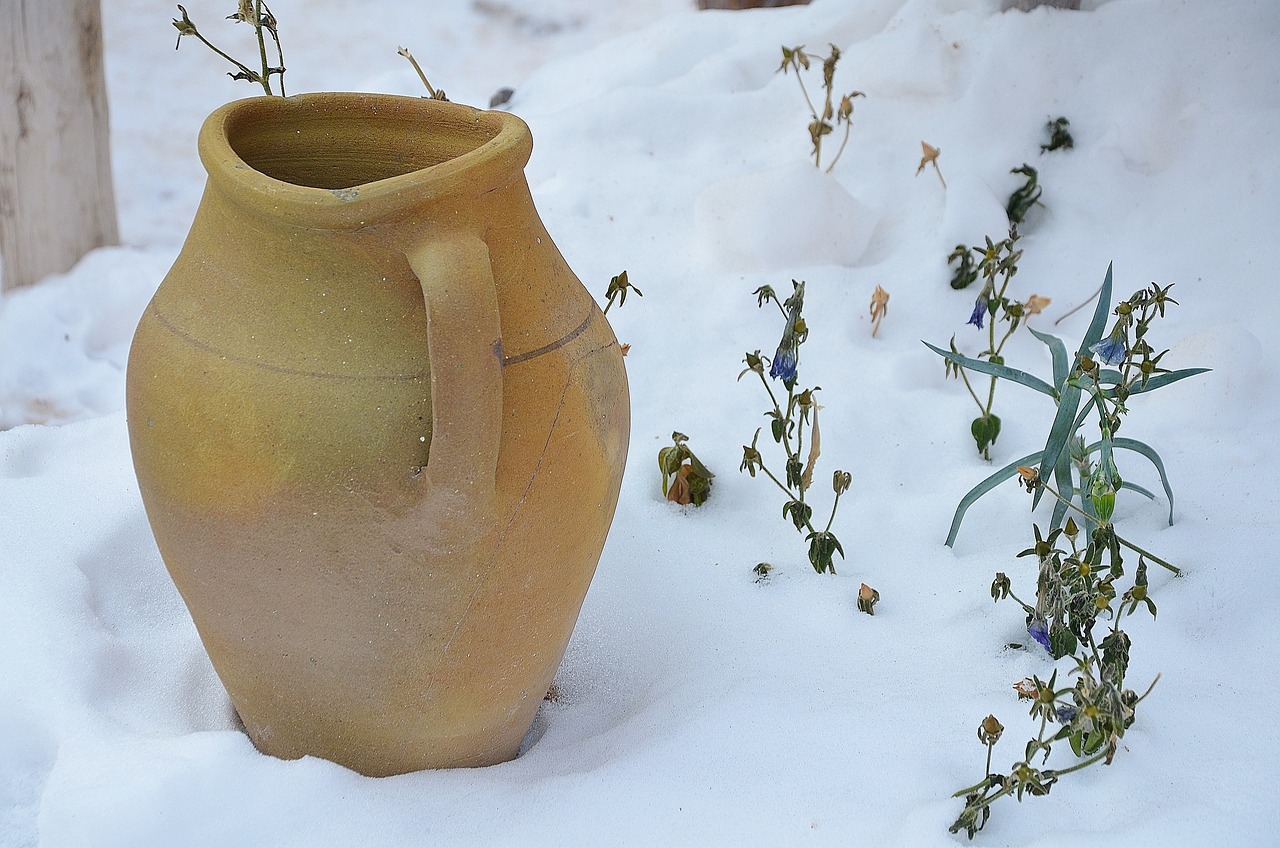
The Therapeutic Benefits of Pottery
Pottery serves as a unique form of therapy, allowing individuals to express their emotions and reduce anxiety through tactile engagement and creativity. Imagine the feeling of your fingers sinking into soft clay, molding it into something uniquely yours. This hands-on experience not only stimulates the senses but also creates a profound connection between the creator and their work. Engaging in pottery can be a transformative experience, acting as a bridge between the inner self and the physical world.
One of the most significant therapeutic benefits of pottery is its ability to provide a safe space for emotional expression. When individuals sit down to work with clay, they often find that their thoughts and feelings flow more freely. This process can help articulate complex emotions that might be difficult to express verbally. The act of shaping clay can serve as a metaphor for life itself; just as we can reshape our creations, we can also reshape our thoughts and feelings. This can lead to a sense of empowerment and control, which is particularly beneficial for those struggling with anxiety or depression.
Moreover, pottery encourages mindfulness—a state of active, open attention to the present. When you’re focused on the feel of the clay, the movement of your hands, and the rhythm of your breath, it becomes easier to let go of the worries that plague the mind. This practice is akin to meditation, where the goal is to immerse oneself fully in the moment. As you lose yourself in the creative process, you may find that your stress levels decrease, and your mental clarity improves.
In addition to emotional benefits, pottery can be a means of social connection. Many people find joy in participating in pottery classes or workshops, where they meet others who share similar interests. This social aspect can be incredibly healing, as it fosters a sense of community and belonging. Engaging with others while creating art can reduce feelings of isolation and promote emotional support networks. The shared experience of crafting something beautiful together can lead to lasting friendships and a stronger sense of connection.
To sum it up, the therapeutic benefits of pottery extend beyond the physical act of creating. They encompass emotional expression, mindfulness, and social interaction, all of which contribute to improved mental health. Pottery offers a holistic approach to well-being, allowing individuals to explore their creativity while nurturing their mental and emotional health. So, why not give it a try? You might just discover a new passion that brings joy and healing into your life.
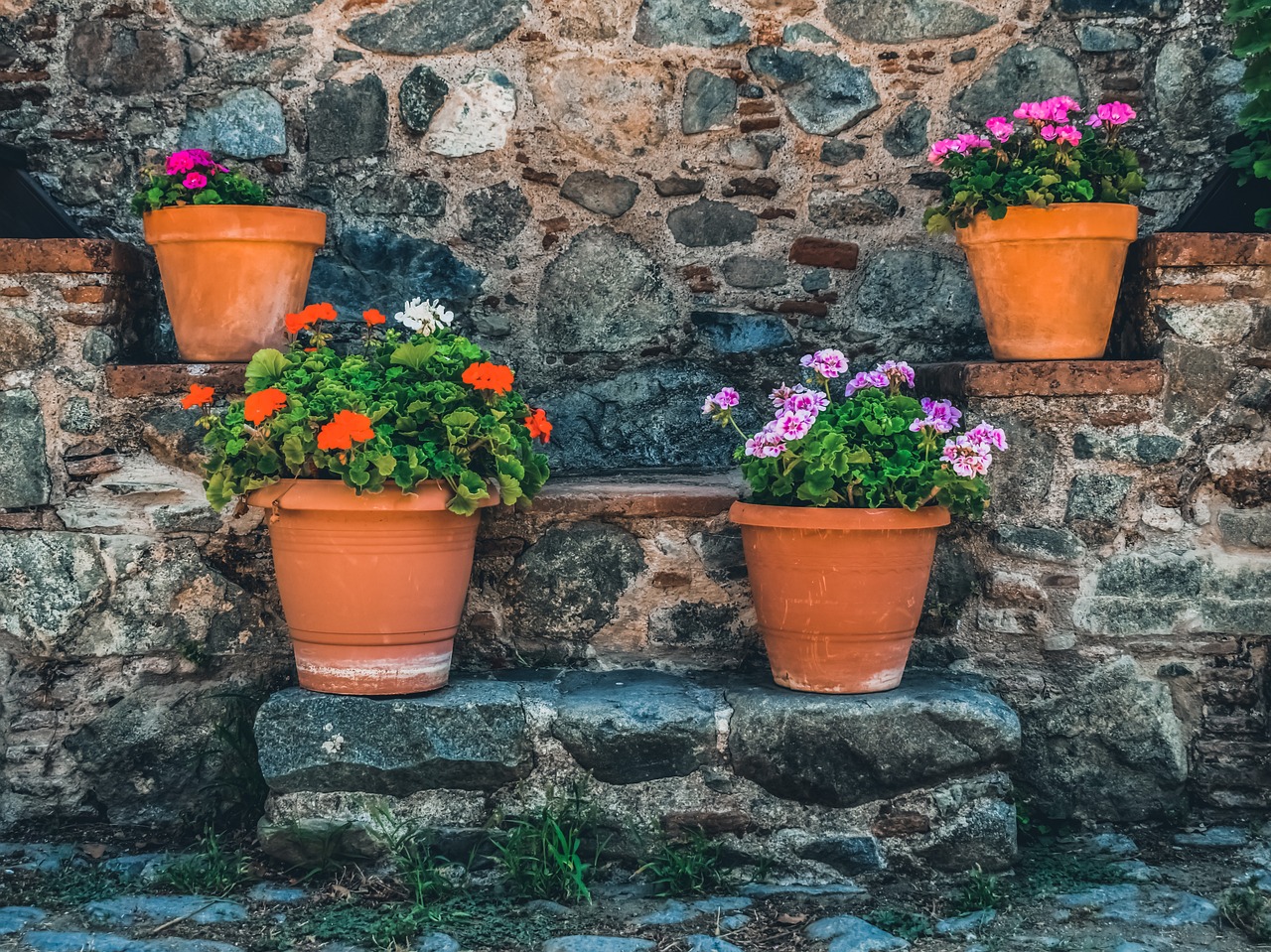
Mindfulness and Pottery
Engaging in pottery is more than just a creative outlet; it's a powerful way to practice mindfulness. When you sit down at the potter's wheel or knead a lump of clay, you enter a state where your thoughts can quiet and your focus sharpens. This act of molding and shaping clay requires your full attention, allowing you to immerse yourself in the moment. Have you ever noticed how time seems to fly when you're engrossed in something you love? That's the beauty of mindfulness in action!
As you work with your hands, you become acutely aware of the texture of the clay, the temperature of the materials, and the rhythm of your movements. This tactile engagement not only grounds you in the present but also helps to alleviate the noise of daily life. When was the last time you felt truly present? Pottery encourages you to let go of distractions and worries, creating a sanctuary of calm amidst chaos. It's like a mini-vacation for your mind!
Mindfulness through pottery can be broken down into several key aspects:
- Focus on the Process: Instead of fixating on the final product, pottery teaches you to appreciate each step, from wedging the clay to glazing your piece. This shift in focus can reduce anxiety and enhance your overall experience.
- Breath and Movement: The rhythmic motions of shaping clay can mirror practices like yoga or meditation. As you breathe deeply and move with intention, you cultivate a sense of peace and presence.
- Emotional Release: The act of creation often brings buried emotions to the surface, allowing for catharsis. Whether it's joy, frustration, or sadness, expressing these feelings through clay can be incredibly freeing.
By incorporating pottery into your routine, you can develop a mindful practice that not only enhances your artistic skills but also contributes to your mental well-being. Imagine the satisfaction of creating something beautiful while simultaneously nurturing your mind and spirit. It's a win-win situation!
In essence, pottery serves as a bridge to mindfulness, enabling you to connect with yourself and the world around you. The next time you find yourself at the wheel, take a moment to breathe deeply and appreciate the journey. After all, in pottery, as in life, it's not just about the destination but the beautiful mess we make along the way.
- What is mindfulness in pottery? Mindfulness in pottery involves focusing on the present moment while engaging in the creative process, allowing for emotional release and stress relief.
- How can I start practicing mindfulness through pottery? Begin by setting aside time for pottery, concentrating on the sensations of the clay, and letting go of distractions.
- Can pottery help with anxiety? Yes, the act of creating pottery can serve as a therapeutic outlet, helping to manage anxiety and promote relaxation.
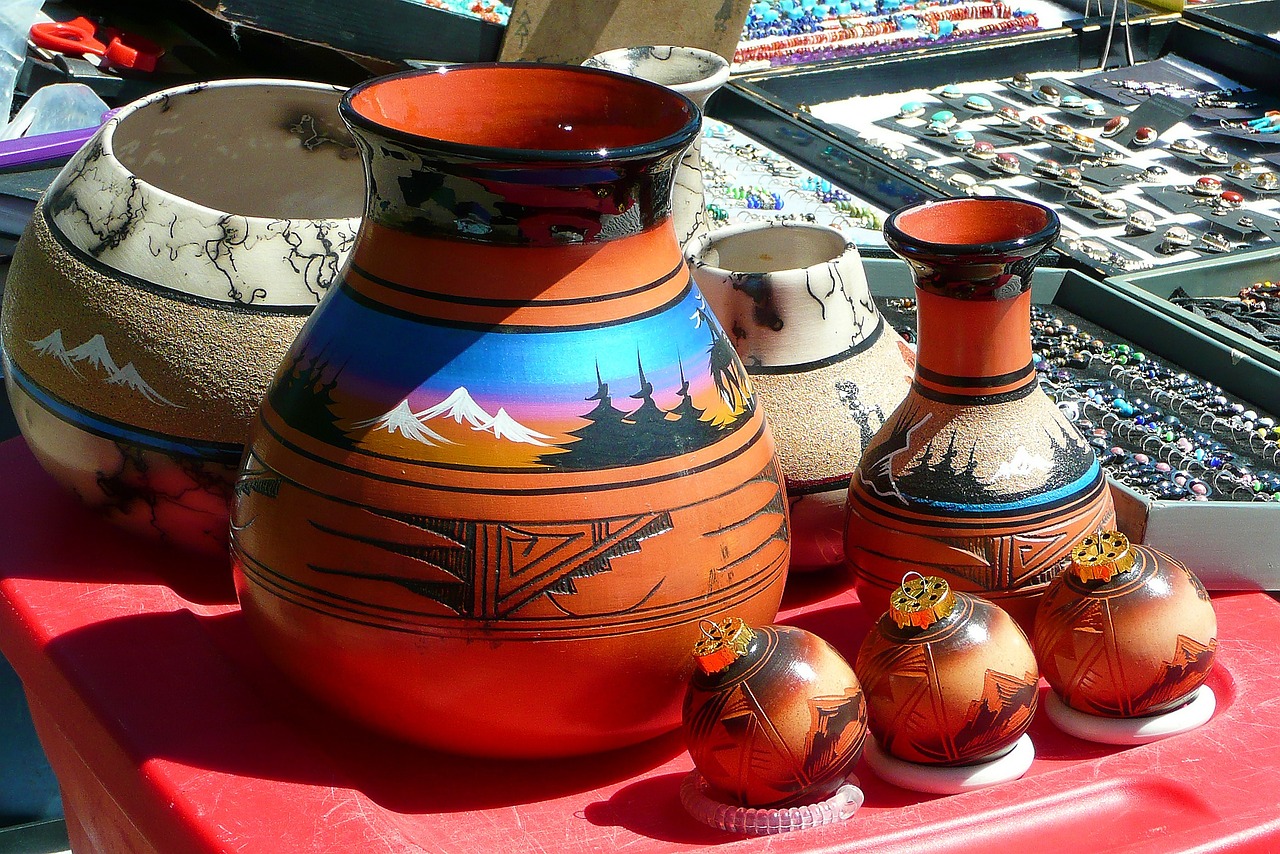
Flow State in Pottery
Have you ever lost track of time while doing something you love? That magical moment when the world around you fades away, and you’re completely absorbed in the task at hand? This is often referred to as a flow state, and pottery is a fantastic way to tap into this enriching experience. When you sit down with a lump of clay and begin to mold it, something incredible happens. Your mind shifts into a different gear, allowing you to focus solely on the sensations of the clay beneath your fingers and the rhythm of your movements.
In this flow state, distractions diminish. It’s almost as if you’ve entered a bubble where only you and your creation exist. This deep concentration can lead to a sense of fulfillment that many people crave in their busy lives. You might be wondering, "How does this happen?" Well, it’s all about the combination of creativity, skill, and mindfulness that pottery demands. Each turn of the wheel or pinch of clay requires your full attention, pulling you away from stressors and worries.
Engaging in pottery allows you to experience a unique blend of challenge and skill. When you first start, shaping the clay can be tricky, but as you practice, you become more adept. This journey from novice to skilled potter can be incredibly rewarding. You might find yourself saying, “Wow, I actually made that!” as you pull a finished piece from the kiln. This sense of achievement further enhances your flow state, reinforcing the positive feedback loop of creativity and skill.
Moreover, the tactile nature of working with clay adds another layer to this experience. The coolness of the clay, the way it gives under your hands, and the satisfaction of seeing your vision come to life are all sensory experiences that ground you in the moment. It’s not just about creating a piece of art; it’s about the journey you take to get there. Each session can be like a mini-vacation for your mind, offering a break from the chaos of everyday life.
So, if you’re looking for a way to escape the hustle and bustle, consider picking up some clay. Whether you’re a seasoned artist or a complete beginner, pottery has the potential to guide you into that elusive flow state. It’s a beautiful reminder that sometimes, the best therapy is simply getting your hands dirty and letting your creativity flow.
- What is a flow state?
A flow state is a mental state where a person is fully immersed in an activity, experiencing a sense of energy and focus. - How can pottery help with stress relief?
The repetitive motions and creative engagement in pottery can be soothing, allowing individuals to release tension and find calm. - Do I need prior experience to start pottery?
No! Pottery is accessible to everyone, and many classes cater to beginners. - Can pottery improve my mental health?
Absolutely! Engaging in creative activities like pottery can enhance mindfulness, boost self-esteem, and foster social connections.
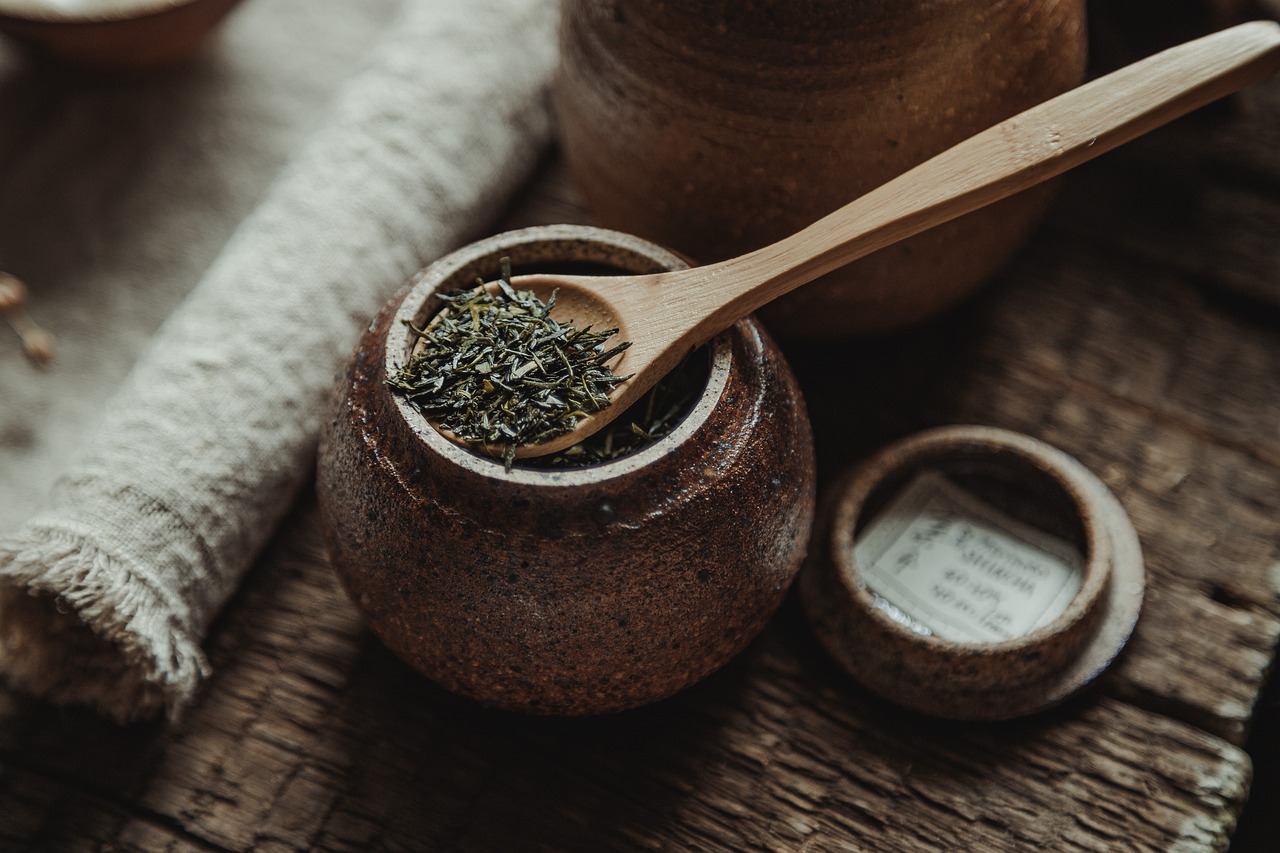
Enhancing Creativity
Engaging in pottery is like unlocking a treasure chest of creativity that resides within each of us. When you sit down at a pottery wheel or start molding clay with your hands, you embark on a journey where the only limit is your imagination. The tactile nature of clay invites you to explore different shapes, textures, and colors, allowing you to express emotions that words sometimes fail to capture. Pottery isn't just about crafting objects; it's about creating a personal narrative through art.
As you dive into the world of pottery, you may find that your creative juices start flowing more freely than ever before. The process of shaping clay can be incredibly liberating, offering a unique opportunity to experiment without the fear of making mistakes. In fact, many potters embrace imperfections as part of the artistic journey, turning what might be seen as flaws into beautiful, one-of-a-kind pieces. This mindset shift can significantly boost your self-esteem and encourage personal growth, as you learn to appreciate the beauty in the unconventional.
Moreover, pottery classes often foster a sense of community, where individuals come together to share ideas and techniques. This collaborative environment can spark inspiration and lead to innovative creations that you might not have thought possible on your own. Think of it as a creative melting pot, where diverse perspectives blend to form something truly extraordinary. Participating in group sessions can also enhance your motivation, pushing you to try new styles and methods that can further ignite your creative spirit.
To illustrate the creative benefits of pottery, consider the following points:
- Self-Expression: Pottery allows you to convey your thoughts and feelings in a tangible form, giving voice to your inner world.
- Problem-Solving: The challenges of working with clay—like figuring out how to balance a piece or achieve the desired texture—encourage critical thinking and innovation.
- Mindful Exploration: The act of molding clay can be meditative, allowing you to lose yourself in the moment and discover new aspects of your creativity.
In conclusion, pottery is more than just a hobby; it’s a powerful tool for enhancing creativity. Whether you are a seasoned artist or a complete beginner, the act of working with clay can open doors to new artistic possibilities and personal insights. So, why not grab some clay and let your imagination run wild? You might just surprise yourself with what you can create!
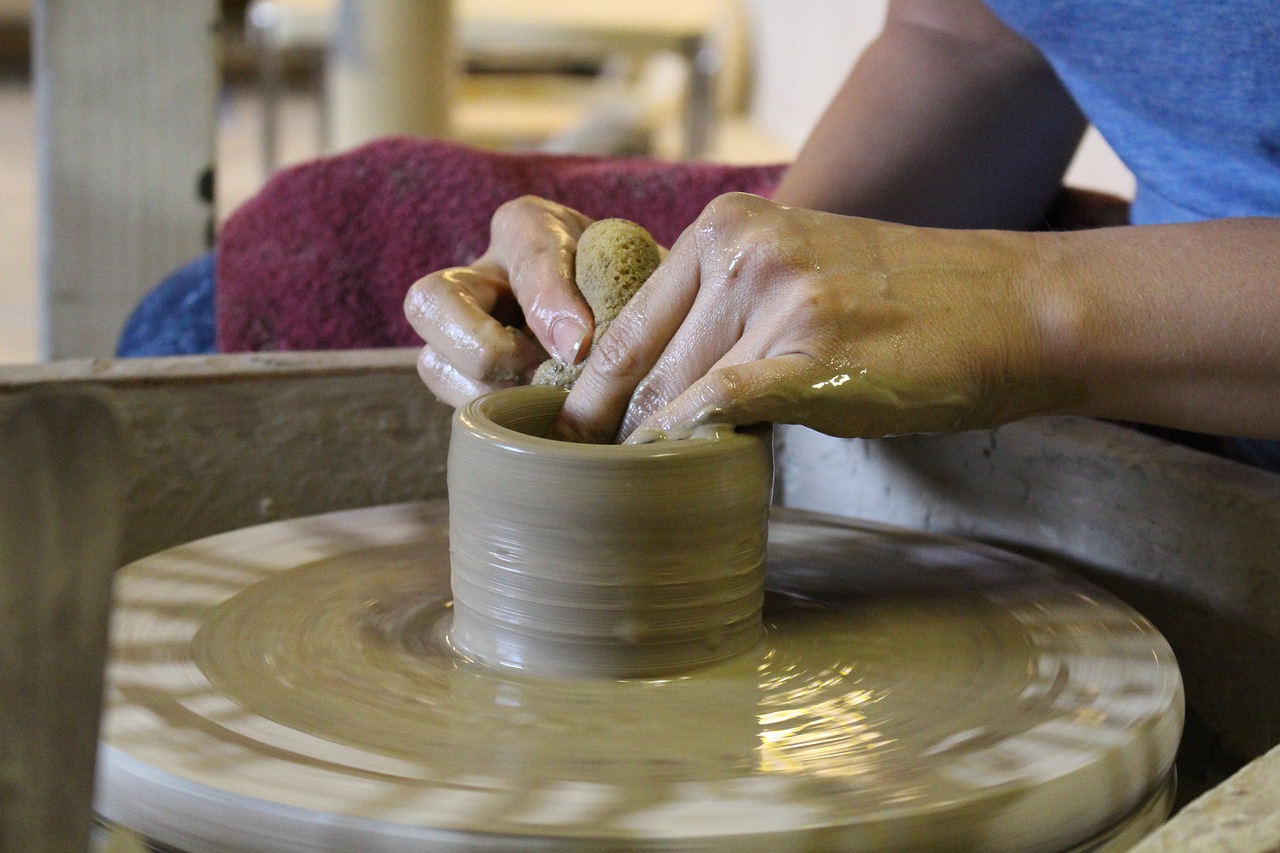
Social Connections Through Pottery
Engaging in pottery isn’t just about molding clay; it’s about creating connections that can last a lifetime. Imagine stepping into a pottery class for the first time, the air filled with the earthy scent of wet clay and the buzz of friendly chatter. You’re not just learning a new skill; you’re stepping into a community. Pottery classes often attract people from all walks of life, each bringing their unique stories and experiences. This diverse melting pot fosters an environment where friendships can blossom, making the creative process even more rewarding.
When you’re elbow-deep in clay, the barriers that often separate us—age, background, or life experiences—start to dissolve. You find yourself laughing over a shared mishap with the wheel or marveling at each other’s creations. These moments create bonds that can be incredibly supportive, especially during tough times. The act of creating together can lead to deep, meaningful conversations, allowing participants to share their thoughts and feelings in a safe, non-judgmental space. It’s like a therapy session, but with the added bonus of getting your hands dirty!
Moreover, pottery can serve as a bridge for those who might feel isolated. For instance, individuals who are new to a city or those who have recently retired may struggle to find social outlets. Joining a pottery class can be a fantastic way to meet new people and build a sense of belonging. The shared experience of learning to shape clay can lead to lasting friendships, creating a supportive network that extends beyond the studio.
As you engage with others in this creative journey, you’ll likely find yourself sharing not just techniques and tips but also personal stories and insights. This exchange can lead to a richer understanding of one another, fostering empathy and compassion. In the end, pottery is more than just a hobby; it’s a vessel for connection, nurturing relationships that can enhance our emotional well-being.
In summary, pottery offers a unique opportunity to forge social connections. Whether you’re laughing with a new friend over a clay mishap or bonding over a shared love for art, the friendships formed in pottery classes can provide essential emotional support and a sense of community.
- What are the benefits of joining a pottery class? Joining a pottery class can enhance your social life, improve your artistic skills, and provide a therapeutic outlet for stress relief.
- Do I need prior experience to join a pottery class? No, most pottery classes welcome beginners, providing guidance and support to help you learn the basics.
- How can pottery improve my mental health? Engaging in pottery can promote mindfulness, reduce stress, and foster social connections, all of which contribute to better mental health.
- Can pottery help me meet new people? Absolutely! Pottery classes are often filled with individuals looking to connect, making them a great place to meet new friends.
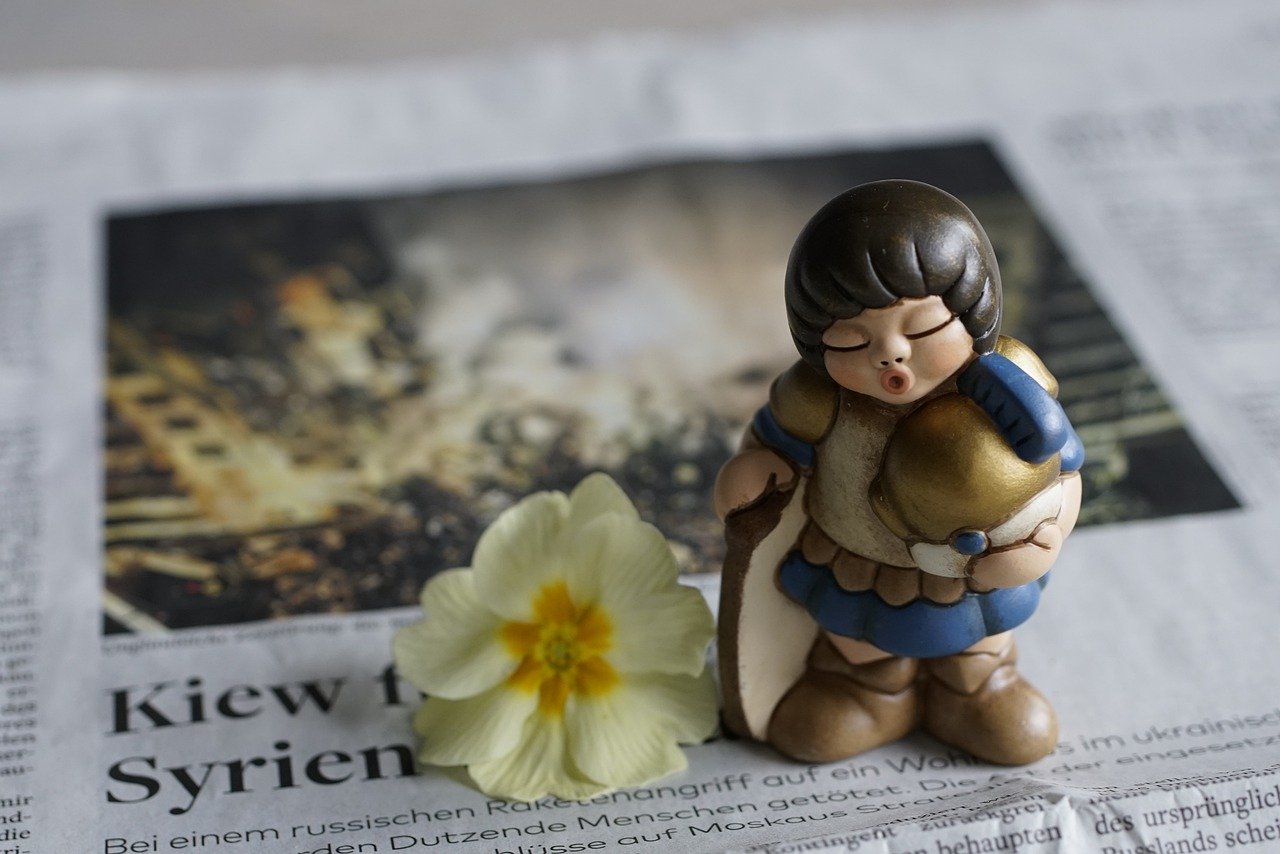
Physical Benefits of Pottery
This article explores the therapeutic benefits of pottery, highlighting how engaging in this creative process can enhance mental well-being, reduce stress, and promote mindfulness.
Pottery serves as a form of therapy, allowing individuals to express emotions and reduce anxiety through tactile engagement and creativity.
Engaging in pottery promotes mindfulness, focusing attention on the present moment, which can alleviate stress and enhance overall mental clarity.
Creating pottery often induces a flow state, where individuals lose track of time, fostering deep concentration and a sense of fulfillment.
Pottery encourages creative expression, allowing individuals to explore their artistic side, which can lead to increased self-esteem and personal growth.
Participating in pottery classes can foster social connections, reducing feelings of isolation and enhancing emotional support networks.
The physical act of shaping clay is not just about creating beautiful pieces; it also offers numerous physical benefits that contribute to overall health and well-being. Working with clay requires fine motor skills, which can significantly improve through regular practice. As your hands mold and manipulate the clay, you're not just creating art; you're also enhancing your hand-eye coordination and dexterity.
Moreover, pottery can be a form of low-impact exercise. The repetitive motions involved in kneading, throwing, and shaping clay engage various muscle groups, promoting strength and flexibility. This can be particularly beneficial for individuals who may not have access to more vigorous forms of exercise. Just think of it as a gentle workout that also allows you to unleash your creativity!
Another aspect to consider is the therapeutic nature of the tactile experience. The sensation of clay between your fingers can be incredibly grounding. It connects you to the earth and can help improve your proprioception, or awareness of body position, which is often overlooked in our fast-paced lives. This connection to your physical self can enhance your overall mental health.
In addition to these benefits, pottery can serve as a form of stress relief. The act of working with your hands can be meditative. As you focus on shaping your piece, you may find that your mind quiets down, allowing you to escape from the daily grind. This can lead to a sense of calm and relaxation, which is crucial for maintaining mental health.
To summarize, here are some key :
- Improved fine motor skills and hand-eye coordination
- Low-impact exercise promoting strength and flexibility
- Enhanced proprioception and body awareness
- Stress relief through tactile engagement
Working with clay provides a soothing outlet for stress, enabling individuals to release pent-up emotions and find calmness in the creative process.
Incorporating pottery into a regular routine can establish a sense of stability and purpose, positively impacting mental health.
Pottery allows for personal reflection, helping individuals process emotions and experiences, ultimately leading to greater self-awareness and emotional resilience.
- What are the main benefits of pottery for mental health?
Pottery helps reduce stress, promotes mindfulness, enhances creativity, and fosters social connections.
- Can anyone take up pottery?
Absolutely! Pottery is accessible to all skill levels, and classes are available for beginners.
- How often should I practice pottery to see benefits?
Regular practice, even just once a week, can lead to noticeable improvements in both physical and mental health.
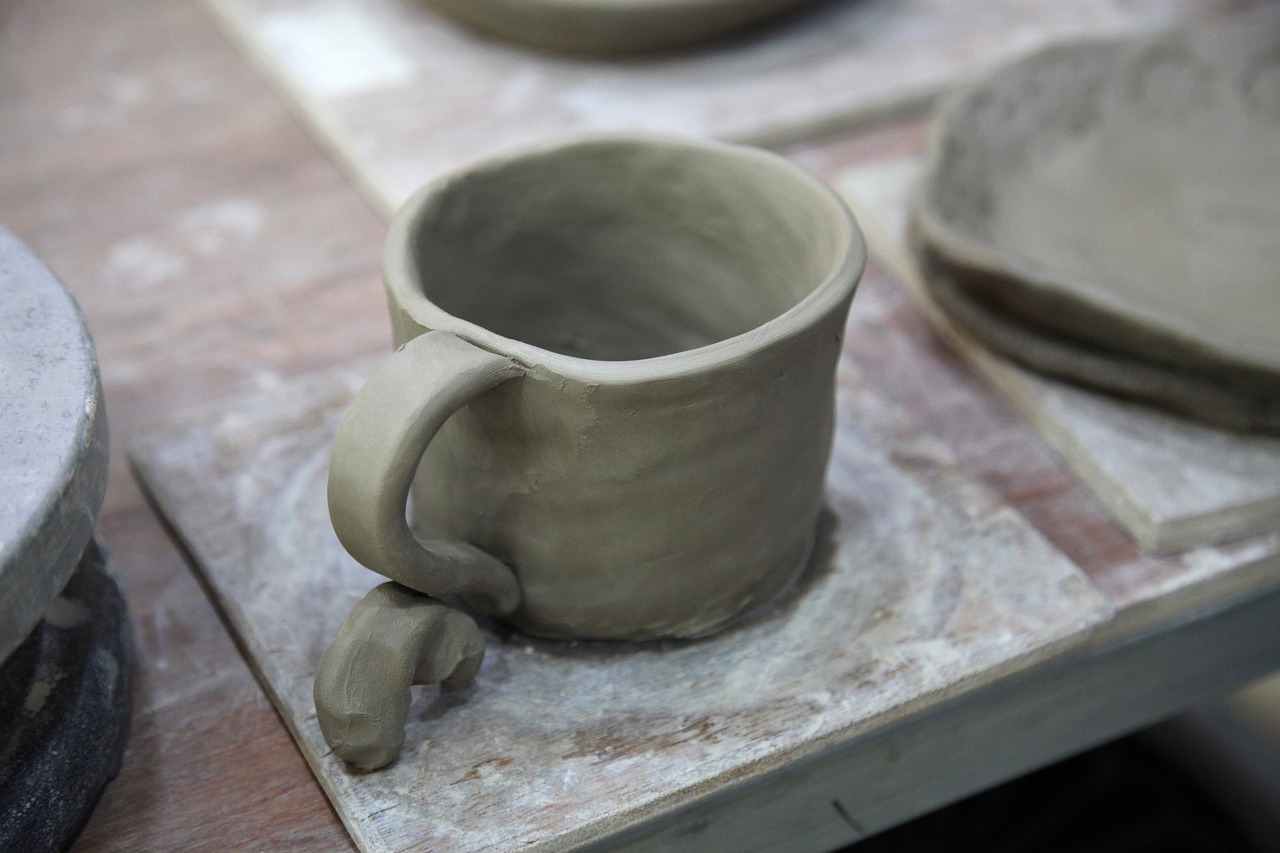
Stress Relief Through Pottery
Stress is an inevitable part of life, but finding effective ways to manage it can sometimes feel overwhelming. Enter pottery—a creative outlet that not only allows you to mold clay into beautiful pieces but also serves as a therapeutic escape from the chaos of everyday life. When you immerse yourself in the art of pottery, you engage in a process that can be profoundly calming and restorative. The tactile nature of working with clay has a unique way of grounding you, pulling your focus away from stressors and into the present moment.
Imagine this: you sit down at a pottery wheel, your hands covered in soft, pliable clay. As you begin to shape and mold, you can feel the tension in your body start to melt away. Each spin of the wheel and every press of your fingers on the clay becomes a meditative act. This is where the magic happens. Pottery acts as a soothing outlet for your pent-up emotions, allowing you to express feelings that might be difficult to articulate verbally. The act of creation itself can serve as a form of emotional release, helping to alleviate anxiety and stress.
Moreover, the repetitive motions involved in pottery can induce a state of mindfulness. When you're focused on shaping your piece, you become less aware of the outside world and more in tune with your inner self. This process encourages you to let go of distractions and worries, promoting a sense of calmness. It’s almost like a form of meditation, where the clay becomes your anchor, helping you to stay present and engaged.
It's important to recognize that pottery doesn’t just benefit your mental health; it can also have a positive impact on your physical well-being. The act of kneading and shaping clay can be a great way to relieve physical tension in your muscles, which often accumulates due to stress. By incorporating pottery into your routine, you create a holistic approach to stress relief that nurtures both your mind and body.
To further illustrate the benefits of pottery as a stress relief tool, consider the following table that highlights key aspects:
| Aspect | Benefit |
|---|---|
| Tactile Engagement | Provides a grounding experience that diverts focus from stressors. |
| Creative Expression | Allows for emotional release and self-exploration. |
| Mindfulness | Encourages present-moment awareness, reducing anxiety. |
| Physical Activity | Relieves muscle tension and promotes relaxation. |
Incorporating pottery into your life can be as simple as setting aside a few hours each week to attend a class or work on your own projects at home. By creating a routine around pottery, you establish a consistent practice that fosters stability and purpose, both of which are essential in managing stress. As you develop your skills and create beautiful pieces, you’ll likely find that your confidence grows, further enhancing your overall mental health.
So, if you’re looking for a way to combat stress, why not give pottery a try? It’s not just about making art; it’s about transforming your mental landscape, one clay piece at a time. You'll be amazed at how this simple act can lead to profound changes in your well-being, offering a much-needed respite from the hustle and bustle of daily life.
- How does pottery help with stress relief?
Pottery engages your senses and allows for creative expression, which can be very therapeutic and calming. - Do I need to be an artist to benefit from pottery?
No, pottery is about the process, not perfection. Anyone can enjoy and benefit from working with clay. - How often should I practice pottery for stress relief?
Even a few hours a week can make a significant difference. Consistency is key!
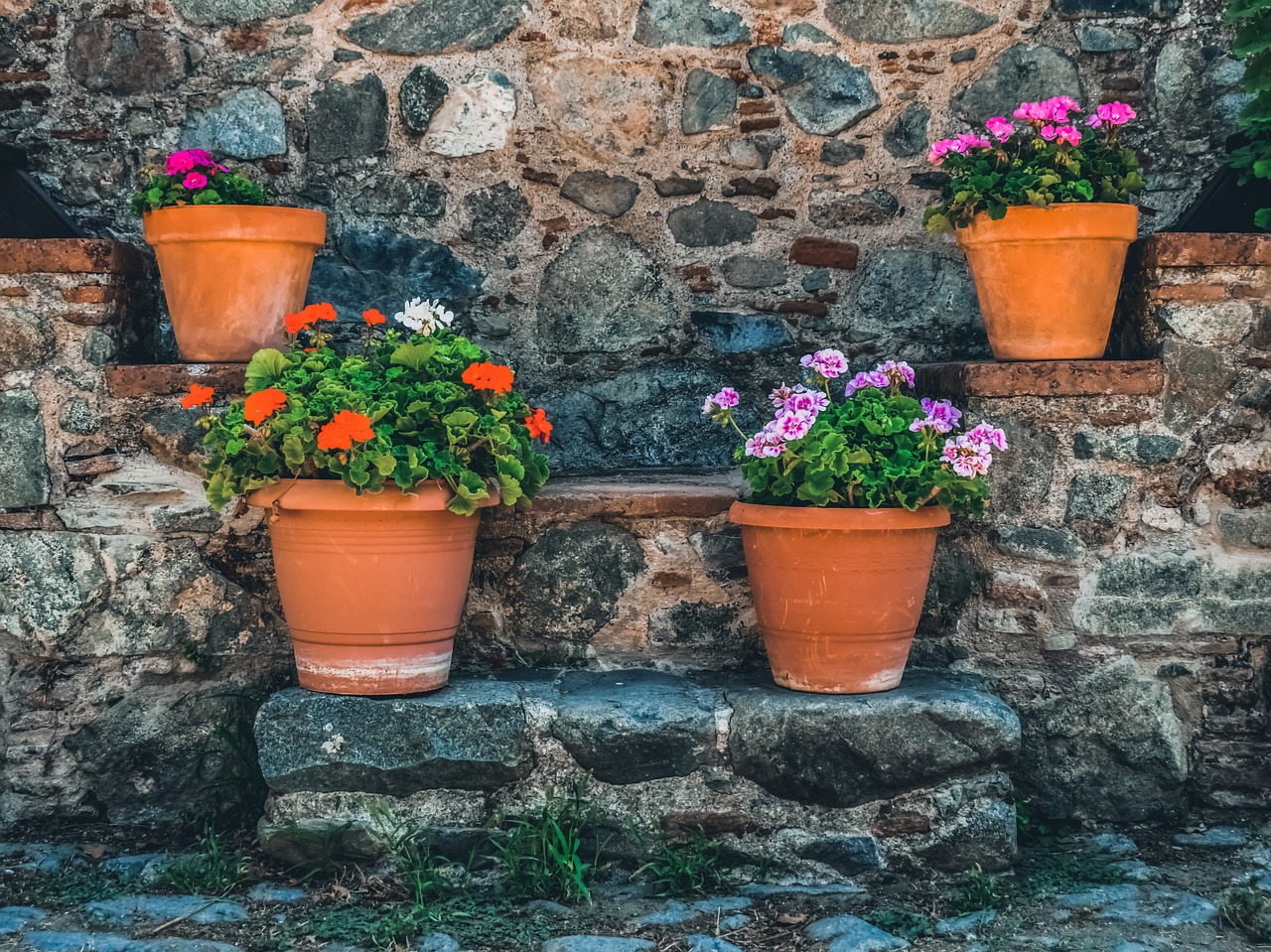
Creating a Routine
Incorporating pottery into your daily life can be a game-changer for your mental health. Think of it as setting up a personal sanctuary where you can escape the hustle and bustle of everyday life. By establishing a routine that includes time for pottery, you create a space for yourself to unwind, reflect, and express creativity. Just like a well-tended garden, your mental well-being flourishes when you nurture it regularly.
Imagine starting your day with a few minutes of kneading clay, the cool, damp texture grounding you in the present moment. This simple act can transform your morning from chaotic to calm. But how do you build this routine? Here are a few tips:
- Set a Specific Time: Choose a time each day or week dedicated to your pottery practice. Consistency is key!
- Create a Comfortable Space: Designate a specific area in your home where you can work on your pottery without distractions. Make it cozy and inviting.
- Start Small: Don’t overwhelm yourself. Begin with short sessions and gradually increase the time as you become more comfortable.
As you continue to practice, you may find that pottery becomes a cherished part of your routine, much like a favorite book or a beloved hobby. The act of shaping clay can become a meditative practice, allowing you to process emotions and thoughts that may have been swirling around in your mind. You might even discover that the repetitive motions of molding and crafting help you to clear your head, leading to moments of insight and clarity.
Moreover, establishing a pottery routine can lead to a sense of purpose. Just as athletes train regularly to improve their skills, you’ll notice your own growth and progress in pottery over time. Each piece you create is not just an object; it’s a reflection of your journey, your emotions, and your creativity. This sense of accomplishment can significantly boost your self-esteem and contribute to a more positive outlook on life.
In essence, creating a routine around pottery is about more than just making art—it's about setting aside time to care for your mental health. By making pottery a regular part of your life, you’re not only enhancing your creative skills but also fostering emotional resilience and stability. So why not grab that lump of clay and start molding your way to a healthier mind?
- How often should I practice pottery for mental health benefits? Ideally, aim for at least once a week. However, even short daily sessions can be beneficial.
- Do I need any prior experience to start pottery? No! Pottery is for everyone, and there are many resources available for beginners.
- What if I don’t have a pottery wheel? You can still enjoy hand-building techniques, which are equally therapeutic!
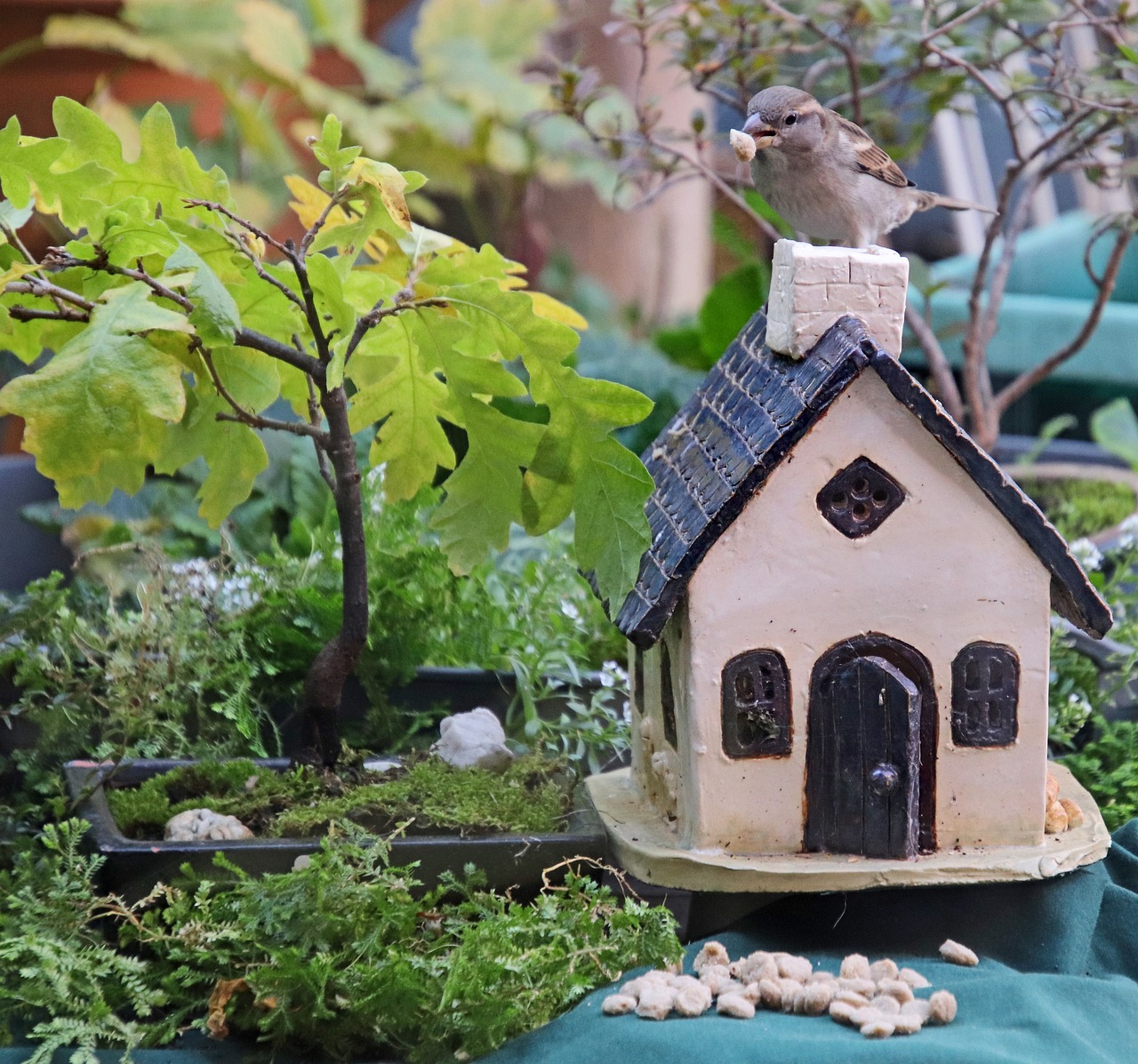
Personal Reflection and Growth
Engaging in pottery is more than just a creative outlet; it serves as a profound journey of . When you sit down at the pottery wheel or start molding clay with your hands, you're not just crafting a piece of art; you're embarking on a path that allows you to delve deep into your thoughts and emotions. Each curve and contour you create can mirror your internal state, providing a tangible representation of your feelings, struggles, and triumphs.
As you shape the clay, there's an opportunity for introspection. The repetitive motions and focus required in pottery can act as a meditative practice, encouraging you to reflect on your life experiences. You might find yourself pondering questions like, "What challenges have I overcome?" or "How have I changed over the years?" This reflective process can lead to significant insights, helping you understand your emotions and reactions in various situations.
Moreover, pottery can enhance your self-awareness. As you experiment with different techniques and styles, you may discover new aspects of your personality. Perhaps you realize that you enjoy the spontaneity of free-form pottery over the precision of traditional techniques, or maybe you find solace in the structured process of creating symmetrical pieces. Each choice you make is a step towards understanding who you are and what you value.
Additionally, pottery can serve as a catalyst for emotional resilience. By facing the challenges of working with a malleable medium, you learn to embrace imperfections and adapt to unexpected outcomes. Just like in life, not every piece will turn out as planned. This realization can foster a growth mindset, teaching you to view mistakes as opportunities for learning rather than setbacks. Over time, this shift in perspective can enhance your overall emotional resilience, equipping you to handle life's challenges with greater ease.
To illustrate the transformative power of pottery on personal growth, consider the following table that outlines the key aspects of this journey:
| Aspect | Description |
|---|---|
| Introspection | Encourages deep thinking about personal experiences and emotions. |
| Self-Awareness | Reveals personal preferences and values through creative choices. |
| Emotional Resilience | Teaches adaptability and acceptance of imperfections in both art and life. |
Ultimately, the act of creating pottery can lead to a remarkable journey of self-discovery. As you mold each piece, you are not just shaping clay; you are also shaping your understanding of yourself. The process encourages you to embrace your unique journey, fostering a sense of pride in your creations and, more importantly, in who you are becoming. So, the next time you sit down to create, remember that every piece of pottery tells a story—your story—and contributes to your ongoing personal growth.
- What are the mental health benefits of pottery? Pottery can reduce stress, promote mindfulness, and enhance emotional resilience.
- Can pottery help with anxiety? Yes, the tactile engagement and creative process can alleviate anxiety and provide a calming outlet for emotions.
- Is pottery suitable for beginners? Absolutely! Pottery classes often cater to all skill levels, making it accessible for everyone.
- How often should I practice pottery for mental health benefits? Regular practice, even just once a week, can significantly enhance your mental well-being.
Frequently Asked Questions
- How does pottery help with stress relief?
Pottery serves as a calming activity that allows individuals to immerse themselves in the creative process. The tactile engagement of shaping clay can distract from daily worries, providing a soothing outlet for pent-up emotions and stress.
- Can pottery improve mental clarity?
Absolutely! Engaging in pottery promotes mindfulness by encouraging individuals to focus on the present moment. This focused attention can lead to enhanced mental clarity and a reduction in anxiety, making it easier to navigate daily challenges.
- Is pottery a good way to express emotions?
Yes, pottery is a fantastic medium for emotional expression. The creative process allows individuals to channel their feelings into their work, which can be incredibly therapeutic and liberating.
- What is the flow state in pottery?
The flow state in pottery occurs when individuals become fully absorbed in the creative process, losing track of time and experiencing deep concentration. This state not only enhances the enjoyment of making pottery but also fosters a sense of fulfillment and achievement.
- How can pottery enhance creativity?
Pottery encourages exploration and experimentation, allowing individuals to tap into their artistic side. This creative expression can boost self-esteem and lead to personal growth as people discover new skills and techniques.
- Can pottery help build social connections?
Definitely! Participating in pottery classes or workshops provides opportunities to meet others with similar interests. These social interactions can reduce feelings of isolation and create supportive networks that enhance emotional well-being.
- What physical benefits can I gain from pottery?
Working with clay can improve fine motor skills and hand-eye coordination. The physical activity involved in shaping and molding clay contributes to overall physical health, making pottery a beneficial hobby for both mind and body.
- How can I incorporate pottery into my routine?
Establishing a regular pottery practice can create a sense of stability and purpose. Setting aside time each week to work on pottery projects can be a rewarding way to enhance mental health and maintain a balanced lifestyle.
- Can pottery assist in personal reflection?
Yes, pottery can be a powerful tool for personal reflection. The creative process allows individuals to process emotions and experiences, leading to greater self-awareness and emotional resilience over time.



















